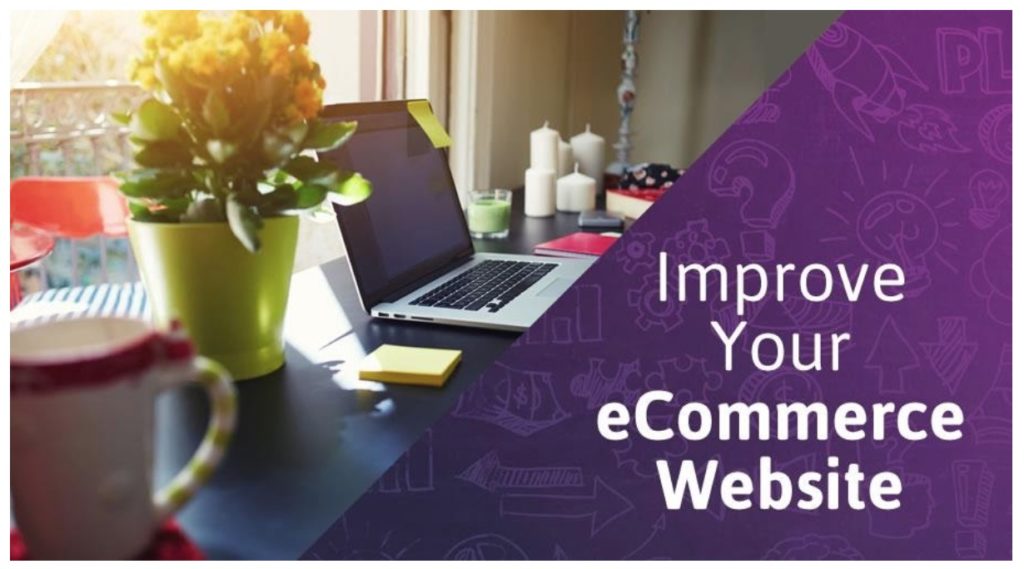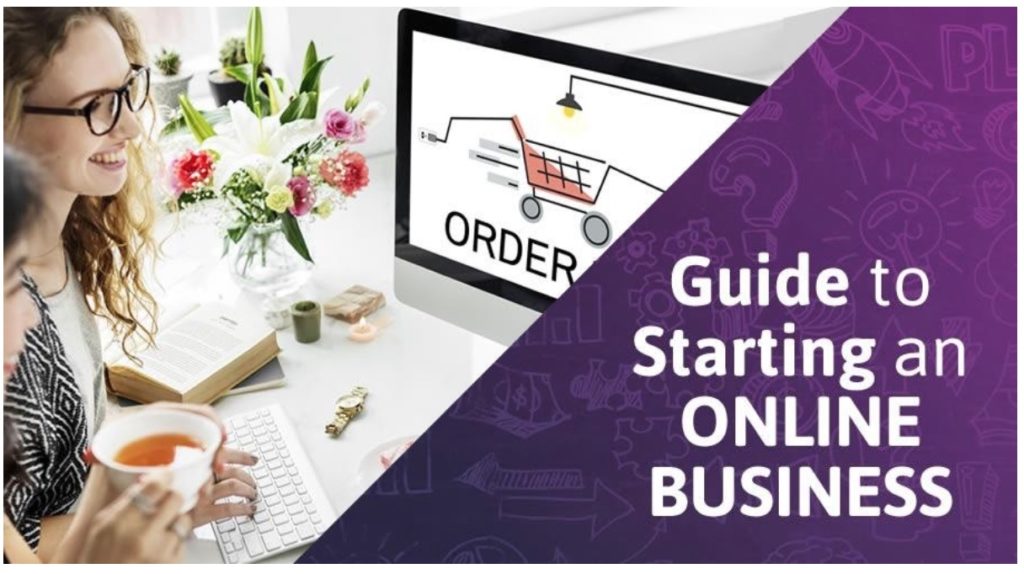Business
How to improve your eCommerce website
Now is the prime time to maintain an eCommerce website because consumers are spending more time online. But there are some common problems that often come up when you have an online store. For example, when using DIY site builders there are a few disadvantages to take into account. Here are four issues you can face and the solutions to those issues, so you can improve your eCommerce store.

3 common problems & fixes for a successful Online Store

Last week, I shared 5 Steps to Help You Build an eCommerce Store. In this article, I’m building upon that foundation and showing you how to improve your eCommerce website.
One of the big reasons why now is the prime time to maintain an eCommerce website is that consumers are online more than ever. According to Absolunet’s COVID-19 x eCommerce Report, sales have jumped:
- +105% in Sporting Goods
- +106% in Furniture and Home Decor
- +160% in Food and restaurants
- +161% in Appliances, Electronics, Building Materials and DIY
Once forced to buy online because of COVID-19, many consumers will continue to do their shopping online, now accustomed to the experience and convenience.
Because your target audience will be spending so much time online, I’m sharing some common problems that often come up and how to improve your eCommerce store:
You’re on the wrong platform
You’ve probably heard about the popular eCommerce website builders that allow you to build and maintain an eCommerce website without any coding or design knowledge. Basically, you drag and drop text and images into a template.
Some of the most popular eCommerce website builders include:
- Wix
- Squarespace
- Shopify
- Weebly
- Square Online Store
While many non-professionals love to recommend using these DIY site builders, there are some disadvantages to them, including:
- Lack of customization. Because there are limits to what you can and can’t do, your site may look fairly generic and be missing the unique touches you can get with a professionally designed site.
- Limited sub-navigation. Squarespace, for example, only allows one sub-navigation. So it’s not suitable for bigger websites that need a deeper menu hierarchy.
- Non-transferable features. If your business has grown and you need something different, it can be very difficult (and costly) to transfer your site away from popular eCommerce website builders.
- Lack of ownership control. With your site being housed on a 3rd party platform, you are technically not the owner of your own data. If you fail to comply with their terms and conditions, even innocently, you could have your site shut down without notice and no way to retrieve your valuable files.
- Poor SEO Optimization. Typically drag and drop web page builders create a lot of excess code, which adversely affects the site’s organic reach in search engines. Moreover, some 3rd party builders do not facilitate critical tracking codes needed for proper SEO and SEM analysis.
- Hidden Costs. Often the lure of free or low monthly fees is what seems appealing on the surface. However, there’s often a limited number of pages or features available unless you pay more for them.
Sadly, many small business owners who were lured by the free or low price tag find themselves stuck on a platform that just doesn’t work for them and that’s when they turn to us for help.
With the right professional website development company, you’ll get a beautiful and functional online store you can not only be proud of, but will get you the sales you want.
It will stand out from the competition and seamlessly reflect your branding—and, it will be able to grow with your business.
***
READ: 5 Steps to Help You Build an eCommerce Store, on our website:

From 2017 to late 2019, approximately 28.1 million Canadians made purchases online. That’s a lot of people who are landing on webpages and whipping out their wallets if they like what they see.
But there’s more to the process than buying a domain name and loading your site with products or services. There are technical aspects to navigate and content to consider.
Do you DIY with a website builder or hire a pro? Should you stick to SEO or focus on paid ads too?
As a small business owner, I’ve helped many clients create successful online companies. So I’m sharing this five-step guide to starting an online business with you to make the process clearer and less stressful.
***
Your site isn’t aesthetically pleasing
Your visitors want to land on an attractive site with an intuitive layout in order to gain their trust that you are a reputable online store.
According to a Kissmetrics study, 93% of buyers consider visual appearance to be the most important factor when making a purchase!
From your logo to your text font and the imagery used, your web design should stay within your brand guidelines.
And you want to make it as simple as possible for your potential clients to find what you offer. Nobody wants to have to click through pages and pages to find a product or service, or to navigate a complex maze of menu items.
For example, a toffee making business makes it easy for people to get to exactly what they’re looking for in an appealing and engaging way with a simple one-page eCommerce set up.
The user experience isn’t the best
There’s more to the online user experience than making menus easy to navigate (although that’s part of it too). In addition to having an intuitive layout that flows from page to page, you want to also:
- Strive for perfection when it comes to customer service. Respond to questions and complaints fast and resolve issues as soon as you can.
Consider using a chatbot, which allows business owners to provide responses and solutions—and even generate leads and sales—24/7 through automated customer service live chat.
- Make sure you have an informative About Us and Contact Us page so your visitors can learn more about you and get in touch with you anytime they need to. Having your photo (and your team members’ if applicable) on your About Us page can be a warm way to welcome visitors to your site.
I also recommend having your customer service phone number visible on every page of your site. This is a great way to emote the valuable trust you want to gain with your visitors.
- If you give back to the community in some way or want your clientele to know about something you stand for, let them know to also build trust.
For example, eVision Media truly believes in giving back by offering our services as well as financial donations to help support several charities and not-for-profit organizations. That’s why we’ve donated our services and provided reduced-rate sponsorships to a number of local organizations.
We share how we’re socially responsible in our About Us sub-menu.
The more pleasant and seamless you make the user experience, the more leads and sales you’ll get.
Of course, there’s a lot more to starting a web-based business than what I’m able to cover here! You’ll also want to provide your visitors with:
- Well written product titles and descriptions
- Strong calls to action
- Fresh SEO content like blog articles and tips
- Video content – especially if they demonstrate the product you’re selling
- Relevant social media posts (e.g., Facebook, LinkedIn, Twitter, Instagram) that attract followers back to your website
- Benefit-driven testimonials and product reviews
So this is just part of a bigger marketing strategy you’ll need to consider as you maintain an eCommerce website.
—
(Featured image by Andrea Piacquadio via Pexels)
DISCLAIMER: This article was written by a third party contributor and does not reflect the opinion of Born2Invest, its management, staff or its associates. Please review our disclaimer for more information.
This article may include forward-looking statements. These forward-looking statements generally are identified by the words “believe,” “project,” “estimate,” “become,” “plan,” “will,” and similar expressions. These forward-looking statements involve known and unknown risks as well as uncertainties, including those discussed in the following cautionary statements and elsewhere in this article and on this site. Although the Company may believe that its expectations are based on reasonable assumptions, the actual results that the Company may achieve may differ materially from any forward-looking statements, which reflect the opinions of the management of the Company only as of the date hereof. Additionally, please make sure to read these important disclosures.

-

 Africa2 weeks ago
Africa2 weeks agoAgadir Welcomes Nearly 570,000 Tourists by May 2025
-

 Impact Investing2 days ago
Impact Investing2 days agoEuropeans Urge Strong Climate Action Amid Rising Awareness and Support
-

 Cannabis1 week ago
Cannabis1 week agoRecord-Breaking Mary Jane Fair in Berlin Highlights Cannabis Boom Amid Political Uncertainty
-

 Biotech6 days ago
Biotech6 days agoVytrus Biotech Marks Historic 2024 with Sustainability Milestones and 35% Revenue Growth

























